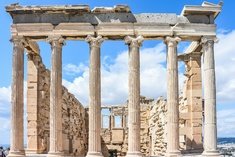Featured Quizzes
User Quizzes
Create Quiz
Data and Charts
Badges and Games
About JetPunk
JetPunk Shop
Dark Mode

Oldest countries in the world
What are the oldest 7 countries in the world according to the post below?
https://www.loveholidays.com/blog/explore/rest-of-the-world/7-oldest-countries-in-the-world/
The hint is the time when it was first called so
Rate:
Last updated: January 13, 2021
You have not attempted this quiz yet.
More quiz info >>
| First submitted | January 12, 2021 |
| Times taken | 1,112 |
| Average score | 71.4% |
| Rating | 1.81 | Report this quiz | Report |
4:00
Enter answer here
0
/ 7 guessed
Time Used
00:00
Best Time
00:00
The quiz is paused. You have remaining.
Scoring
You scored / = %
This beats or equals
% of test takers
also scored 100%
The average score is
Your high score is
Your fastest time is
Keep scrolling down for answers and more stats ...
|
|
New and Popular
Save Your Progress
Copyright H Brothers Inc, 2008–2024
Contact Us | Go To Top | View Mobile Site

Anyway it makes no sense to consider India the same as any of the kingdoms pre-Gandhi, either. But it's no less weird than doing that for China or Egypt or anywhere else.